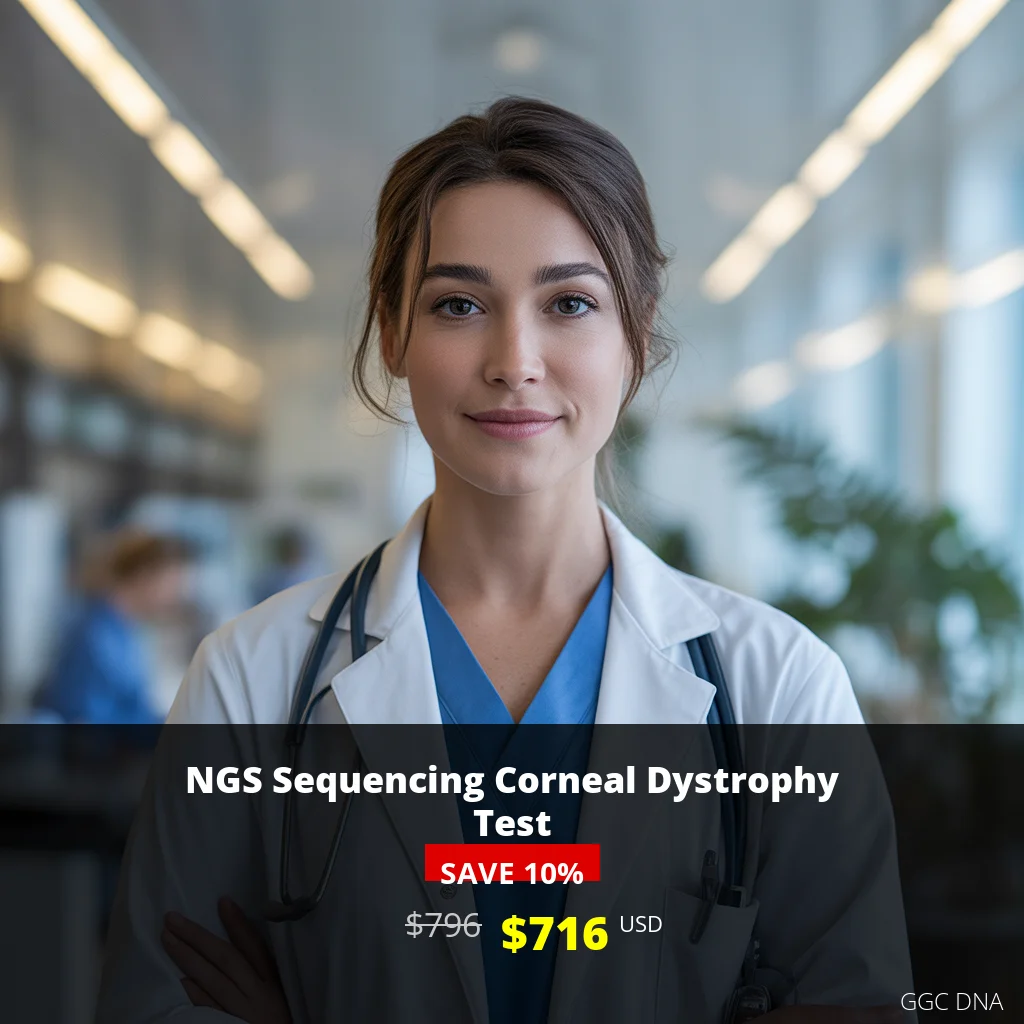NGS Sequencing Corneal Dystrophy Test
Comprehensive Genetic Analysis for Corneal Disorders
The NGS Sequencing Corneal Dystrophy Test represents a breakthrough in ophthalmic genetic diagnostics, providing unparalleled insight into inherited corneal conditions. This advanced molecular test utilizes next-generation sequencing technology to identify genetic mutations responsible for various forms of corneal dystrophy, enabling precise diagnosis and personalized treatment approaches.
What This Test Measures and Detects
Our comprehensive genetic panel analyzes 30 critical genes associated with corneal dystrophy, including:
- ABCA4, ADAM9, AIPL1, BEST1
- C8ORF37, CABP4, CACNA1F, CACNA2D4
- CDHR1, CERKL, CNGB3, CNNM4
- CRX, GUCA1A, GUCY2D, KCNV2
- PDE6C, PDE6H, PITPNM3, PROM1
- PRPH2, RAX2, RDH5, RGS9
- RGS9BP, RIMS1, RPGR, RPGRIP1
- SEMA4A, UNC119
Who Should Consider This Test
This genetic test is recommended for individuals experiencing:
- Progressive vision deterioration or blurring
- Corneal clouding or opacity development
- Recurrent corneal erosions or epithelial defects
- Photophobia (light sensitivity)
- Family history of corneal disorders
- Unexplained corneal deposits or changes
- Early-onset corneal abnormalities
Key Benefits of Genetic Testing
- Accurate Diagnosis: Precisely identify the specific type of corneal dystrophy
- Personalized Treatment: Guide targeted therapeutic interventions
- Genetic Counseling: Provide family members with inheritance risk information
- Proactive Management: Enable early intervention and monitoring
- Disease Progression Insight: Understand potential future complications
Understanding Your Test Results
Your genetic test report will provide detailed information about detected mutations and their clinical significance. Positive results indicate specific genetic variants associated with corneal dystrophy, while negative results suggest alternative causes for symptoms. Our genetic counselors will help interpret results and discuss implications for treatment and family planning.
Test Pricing Information
| Test Description | Price (USD) |
|---|---|
| NGS Sequencing Corneal Dystrophy Test – Discount Price | $716 |
| NGS Sequencing Corneal Dystrophy Test – Regular Price | $796 |
National Availability and Booking
We have diagnostic centers conveniently located across the United States, including major metropolitan areas such as New York, Los Angeles, Chicago, Houston, Phoenix, Philadelphia, San Antonio, San Diego, Dallas, and San Jose. Our state-of-the-art facilities ensure consistent, high-quality testing nationwide.
Ready to take control of your eye health? Schedule your NGS Sequencing Corneal Dystrophy Test today by calling our dedicated patient care line at +1(267) 388-9828 or book your appointment online through our secure patient portal.
Test Specifications
- Turnaround Time: Sample collected daily by 9 AM; Report available in 45 working days
- Sample Requirements: 10 mL (5 mL minimum) whole blood from 2 Lavender Top (EDTA) tubes
- Shipping Instructions: Ship refrigerated – DO NOT FREEZE
- Required Documentation: Duly filled Whole Exome Sequencing Consent Form (Form 37)
- Testing Methodology: Next-Generation Sequencing (NGS) with Sanger sequencing confirmation
Our commitment to excellence in molecular diagnostics ensures you receive the most accurate and comprehensive genetic analysis available for corneal dystrophy conditions.







